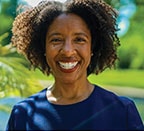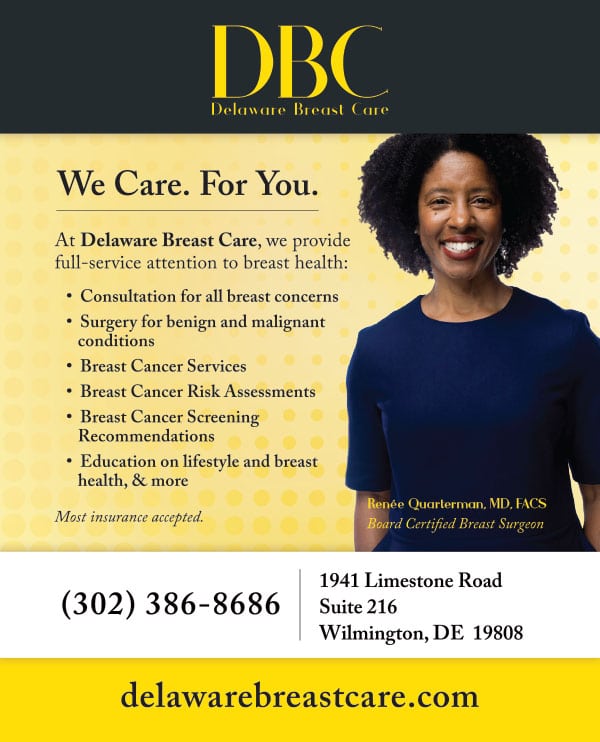Breast Cancer Screening: What Is Right For You?

By Renée L. Quarterman, MD, FACS
When should a woman start getting screened for breast cancer, and how often?
The answer to this question has been the same for years: start at age 40 and get annual mammograms. But that answer has more layers now. One screening plan does not fit every woman anymore.
The recommendations for breast cancer screening have been challenged and changed several times over recent years because decades of research have taught us a lot. Breast cancer, by and large, has very good outcomes and not every woman has the same risk for getting it. This research has led many organizations to change their rules for breast cancer screening. While most physicians in this county would not argue with starting annual screening mammograms at age 40, there is more information that needs to be considered in the decision-making:
A woman’s PERSONAL MEDICAL HISTORY plays a role in her breast cancer risk. This includes her ages at the start of menses and at menopause. Her childbirth history is also significant. It’s important to keep track of any breast issues in your past, including any biopsies or surgeries. Keep records of all breast pathology results. Some benign breast diagnoses actually increase breast cancer risk.
Your FAMILY HISTORY of cancer is crucial to know. This includes both sides of the family. Try to record the type of cancer and the age each person was when diagnosed. This information can tell your provider if you may be at increased risk for breast cancer and if you should be considered for genetic counseling.
Some people have GENETIC MUTATIONS, or have been tested for them. Record any documented mutations in the family and try to get as much detail about them as possible. If someone was tested and found to not have a mutation, that’s important, too!
Know your BREAST DENSITY. This describes the amount of fibrous tissue compared to fatty tissue in the breasts. The greater the fibrous tissue, the greater the density. The greater the density, the greater the risk of breast cancer. If you get a mammogram, your density should be on the report.
Be honest about your LIFESTYLE. Cigarette smoking, alcohol consumption and being overweight or obese all increase breast cancer risk.
Your PERSONAL MEDICAL HISTORY, FAMILY HISTORY, GENETICS HISTORY, BREAST DENSITY and LIFESTYLE all combine to give your personal breast cancer risk. So, one woman’s risk will not be the same as her friend’s, or even her sister’s. A woman’s risk for breast cancer may be higher or lower than she expects it to be. Knowing that risk, we can personalize a woman’s breast cancer screening plan to maximize her breast health.
Here are some general guidelines about breast cancer risk assessment and screening from the American Society of Breast Surgeons:
- Formal breast cancer risk assessment should be done for all women over age 25, with the risk updated at regular intervals.
- 3D mammography is the preferred modality.
- If a woman has an average breast cancer risk, she should start breast cancer screening at age 40. If her breasts are dense, additional imaging studies should be considered.
- A woman with increased breast cancer risk may need to start screening as young as 25 or 30, depending on the reasons why her risk is elevated (i.e., genetic mutation, chest wall radiation for cancer, family history).
- Women with elevated breast cancer risk may benefit from imaging every 6-12 months, supplementing mammograms with additional tests.
- When thinking about breast cancer screening and mammograms, have an open conversation with your provider to determine which regimen is best for you.
Delaware Breast Care provides breast cancer risk assessment through our CARES program. If you’d like to know more, please call 302.386.8686 or visit us at delawarebreastcare.com.
Bio
Dr. Quarterman is a board-certified surgeon dedicated to promoting and preserving breast health. Raised in Wilmington, Delaware, she attended Brown and Duke Universities.
Testimonial
“I give Dr. Quarterman the highest recommendation as a doctor, surgeon and person. I could not have had any better care.” ~ Marie P.


